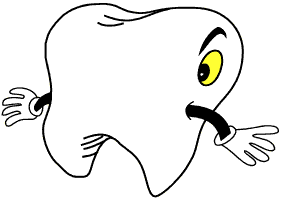 |
||||||||||||||||||
|
|
||||||||||||||||||
|
◄ Back to What´s New At Savon - Monthly Newsletter Home Page November 2020 NewsletterWhat´s New at Savon
Quote Of The Month: “I´m from Canada, so Thanksgiving to me is just Thursday with more food.” (Howie Mandel - Canadian TV Personality - 1955-Present) Congratulations To: To Your Health With Jourdin Hendershot: Outer Ear Infection
Below are a few different ways an outer ear infection can begin:
The infection usually begins at the outer ear but can quickly spread to nearby tissues, including the cartilage and bone causing nerve damage and even facial paralysis if not taken care of in a timely manner. If you start to experience ear pain or any discomfort, seek medical attention right away. If your doctor suspects an outer ear infection, they will most likely clean out the ear canal and prescribe some oral antibiotics and ear drops. They may also advise you to take over–the–counter pain medication and to avoid getting your head wet for 7–10 days. In approximately 3–4 days you may start to feel normal again. Never wait it out, by doing this you are putting your health on the line. If you have questions you would like to discuss with Jourdin, feel free to drop her an email by clicking here. Grandma´s Kitchen With Grandma C.: Easy Pumpkin Mousse Pie
Blend your vanilla pudding mix and milk together with a mixer. Add pumpkin puree and pumpkin pie spice and mix until well blended. Fold in Cool Whip. Pour mousse into the pie crust and smooth with a spatula. Add additional Cool Whip on top and sprinkle with a little bit of pumpkin pie spice for garnish. Refrigerate until ready to serve. Recipe serves 8. Enjoy! And remember, if it looks and smells good, eat it!! If you have a recipe that you would like to share with Grandma C., drop her an email by clicking here.
Crazy, Zany Facts About Black Friday We Bet You Didn´t Know
Dental Talk - A Member Blog Forum:
These are just a few of the topics. Our blog site contains many other interesting topics. Please join us!! Questions From Our MembersB. Bradbury of Houston, Texas asks:“I have a constant ringing in my ears and my PCP suggested that I get examined by a dentist. What could my teeth have to do with this ringing?” Savon’s AnswerAlthough we are not dentists, we did do some research and here´s some of what we found.The constant ringing in the ear is known as tinnitus. It has been reported that tooth abscesses or impacted wisdom teeth can cause tinnitus. In such cases dental treatment may cure the condition. Other times the tinnitus will gradually fade over time. One way this can occur is by aggravation of existing Temporomandibular Joint (TMJ) dysfunction. Infection in the tooth or impacted wisdom teeth can cause inflammation that affects the TM joint. TMJ dysfunction can be treated by dentists who specialize in the condition. They begin by fitting a mouth guard that aligns the lower jaw with the skull. When needed, more advanced, non–invasive therapies are developed to relax the muscle tissues. There have been isolated cases of bilateral sensorineural hearing loss and tinnitus that occurs following dental surgery to remove impacted wisdom teeth. Another way that tinnitus can be caused is by the prolonged neck bending that occurs during dental surgery. This is referred to as somatic tinnitus and happens when bodily signals due to muscle strain can influence normal auditory pathways. Unconsciously clenching the jaw or grinding the teeth is known as bruxism. This is one of the primary causes of TMJ dysfunction and often leads to tinnitus. It is a habit, which can be broken, not a reflex chewing activity. It can originally be caused by a number of conditions including allergy, trauma or high stress. Once bruxism becomes a habit, the original stimulus can be removed and the bruxism will continue. Bruxism can also be treated with mouth guards, much like TMJ therapy. Further treatments may involve biofeedback or hypnotherapy to promote relaxation. In any case, always follow the advice of your doctor and seek the medical attention that is suggested. Tooth Talk With Tommy The Wisdom Tooth Sleep Apnea May Affect COVID-19 SeverityA Reprint of an articly by Melissa Busch, DrBicuspid.com assistant editor
Approximately 22 million individuals in the U.S. have sleep apnea, and about 80% of cases of moderate and severe OSA are undiagnosed, according to the American Sleep Apnea Association. Symptoms of apnea include snoring, waking up with headaches, and feeling tired all day. Custom–fit oral appliances, which are worn by patients at night, can treat sleep apnea and snoring in adults by properly positioning the jaw and preventing the airway from collapsing. Untreated apnea can lead to heart problems and high blood pressure, and it is associated with diabetes. These same health conditions are linked to the respiratory disease COVID–19. To investigate a potential connection between sleep apnea and increased risk for more severe complications and death due to COVID–19, the researchers completed a systematic review of 18 studies completed through June 2020 that reported outcomes for COVID–19 patients who were also diagnosed with the sleeping disorder. A lot in common Many COVID–19 patients who went to intensive care had obstructive sleep apnea.– Those patients who also had diabetes had an increased risk that was independent of other factors. More specifically, patients diagnosed with diabetes, hospitalized for COVID–19, and being treated for sleep apnea were at a three times greater risk of dying on the seventh day of their hospital stay, according to the authors. The link between sleep apnea and COVID–19 likely has to do with how they both affect bradykinin pathways, which are activated by increases in oxidative stress and inflammation. Apnea already activates these pathways, and it´s likely that the novel coronavirus exacerbates this, the authors explained. Though the similarities were noteworthy, the studies analyzed did have some limitations, including small sample size. Also, it is difficult to determine the exact number of people who have sleep apnea and experienced worse outcomes due to COVID–19 because the sleep disorder is largely undiagnosed, they wrote. More to do The effect of the virus on those with this sleep condition needs to be studied further, and more needs to be done to identify those who have not yet been diagnosed with sleep apnea. “The pandemic has had a major effect on the treatment management and diagnosis of OSA and moving forward it may be necessary to explore new diagnosis and treatment pathways for these individuals,” the authors wrote. Until next time; brush, floss and keep smiling! The Coronavirus & Holiday DepressionThe coronavirus has impacted all of our lives. As we approach the holidays, for most people it´s a fun time of the year filled with celebrations, and social gatherings with family and friends. For many people, it is a time filled with sadness, self-reflection, loneliness and anxiety. Some of the most common sources of holiday depression are:
Due to the restrictions that are currently in place and the chance of new ones being imposed, all we can do is watch the number of cases and pray that we will be able to follow through with our plans. If you feel yourself falling into a depressed state or becoming lonely during this period, reach out to someone close to you if you can. There are also plenty of other services available. All you need to do is let someone know that you want some help. A good stater resource may be SAMHSA´s National Helpline — 1–800–662–HELP (4357), a confidential, free, 24–hour–a–day, 365–day–a–year, information service or the National Suicide Prevention Lifeline 1–800–273–8255. The Lifeline provides 24/7, free and confidential support for people in distress. Stay safe and stay well and enjoy the upcoming season. |
||||||||||||||||||






